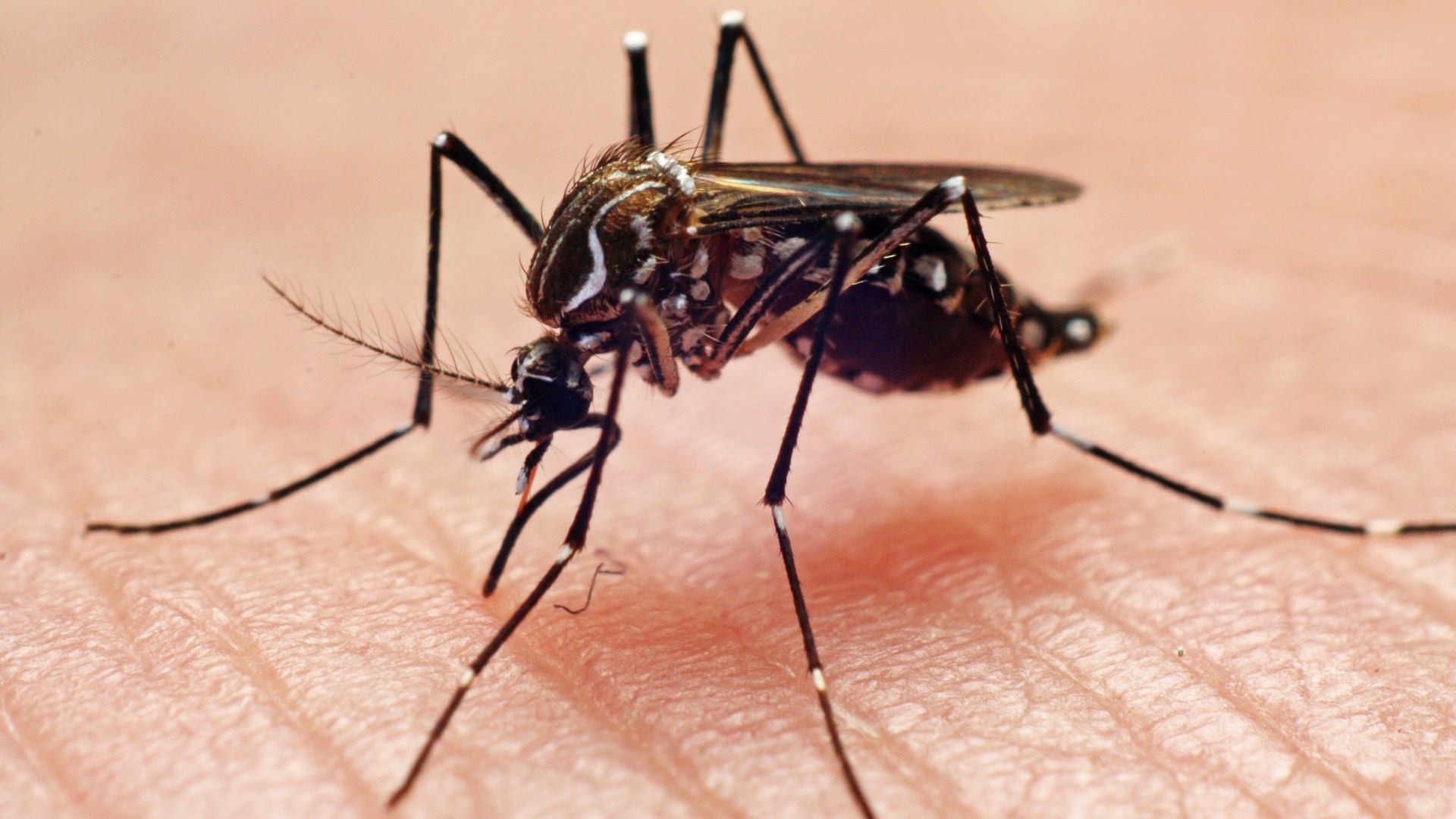TIGER mosquitoes carrying killer ‘breakbone’ fever have made home or been spotted in at least 18 EU countries.
Popular tourist hotspots, like Spain and Greece, are among the places where the disease-ridden critter has become established.
2
The bugs have become a growing threat to Europe over the past two decades as warmer temperatures have allowed the blood-sucking nat to thrive, according to the European Centre for Disease Prevention and Control (ECDC).
European scientists have linked their presence to a recent surge in dengue cases on the continent.
They fear international travel will increase the risk of more local outbreaks – including in the UK.
In France, which is holding the Olympics in July, alarm bells have already started ringing.
A health ministry official said earlier authorities were preparing for possible disease threats during the games by monitoring and trapping the insect.
The mosquitos have already become “established” in Austria, Bulgaria, Croatia, France, Germany, Greece, Hungary, Italy, Malta, Portugal, Romania, Slovenia and Spain, according to the health body.
This means it has developed a self-sustaining population that is reproducing in the country.
And once a mosquito is established somewhere, it is practically impossible to get rid of.
It has also been spotted in Belgium, Cyprus, Czechia, the Netherlands and Slovakia.
London could become thenext hotspot for the irrepressible critter within the next decade, experts have previously warned.
Last year, the UK government installed additional mosquito traps at ports, service stations, and truck stops throughout south England to counter the growing spread of dengue fever.
The bugs have already been spotted six times in southeast England since 2016.
The mosquito, known for the black and white stripes along its body and legs, can transmit several tropical diseases, including dengue, zika and chikungunya.
Until recently, these diseases were only typically present in parts of Africa, Asia and the Americas – where the bugs were established.
All can cause severe complications and, in rare cases, can be deadly.

2
WHAT ARE DENGUE, CHIKUGUNYA AND ZIKA?
Dengue fever can cause severe muscle and bone pain in those infected, which is why it’s sometimes nicknamed ‘breakbone’ fever.
About one in 10 of those infected will develop severe dengue, which can result in shock, internal bleeding, and even death.
Big outbreaks have been rising in recent years.
Last year, eight infections were recorded in France, four in Italy and two in Spain.
The majority of European cases are caught abroad and brought home.
However, locally acquired infections are also rising, with 130 people affected in 2023, up from 71 the year before.
“Europe is already seeing how climate change is creating more favourable conditions for invasive mosquitos to spread into previously unaffected areas and infect more people with diseases like dengue,” said ECDC director Andrea Ammon.
“Increased international travel from dengue-endemic countries will also increase the risk of imported cases, and inevitably also the risk of local outbreaks”.
Chikungunya is a viral infection most commonly found in Africa, Asia, and the Americas.
It can cause fever, severe joint pain, muscle pain, headache, nausea, fatigue and rash.
Serious complications are not common, but in older people, they can contribute to the cause of death.
Zika virus is mainly found across the Americas and Asia.
Symptoms are usually mild, but some will experience a rash, itching, joint pain, fever, headache and lower back pain.
The real danger is for pregnant women, as the disease an be passed from mother to baby.
The virus has been connected to the neurological condition Guillain-Barré syndrome, which can cause paralysis.
It has also been linked to the microcephaly birth defect in babies, which causes them to be born with abnormally small heads and incomplete brain development.
How to protect yourself against dengue
THOUGH dengue is more common in tropical regions, it has been spotted in places closer to the UK.
There isn’t a vaccine available in the UK that you can have to prevent dengue before travelling to a country where there’s a risk of infection.
But there are certain measures you can take to avoid bitten by mosquitoes with dengue.
- Wear long-sleeved clothing and trousers to cover your arms and legs, particularly during early morning and early evening
- Use insect repellent on your skin (ideally one that contains the ingredient DEET)
- Close windows and doors whenever possible, or use blinds or screens
- Sleep under a mosquito net treated with insecticide, including during the day




